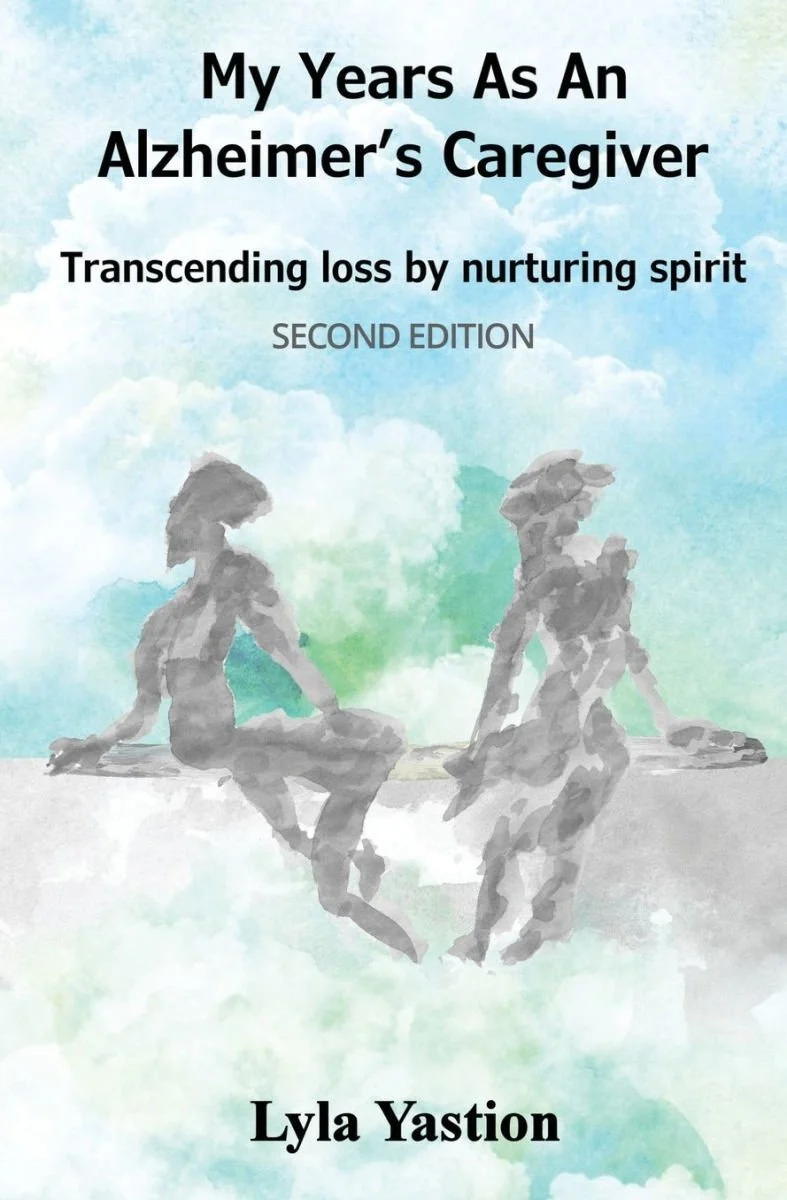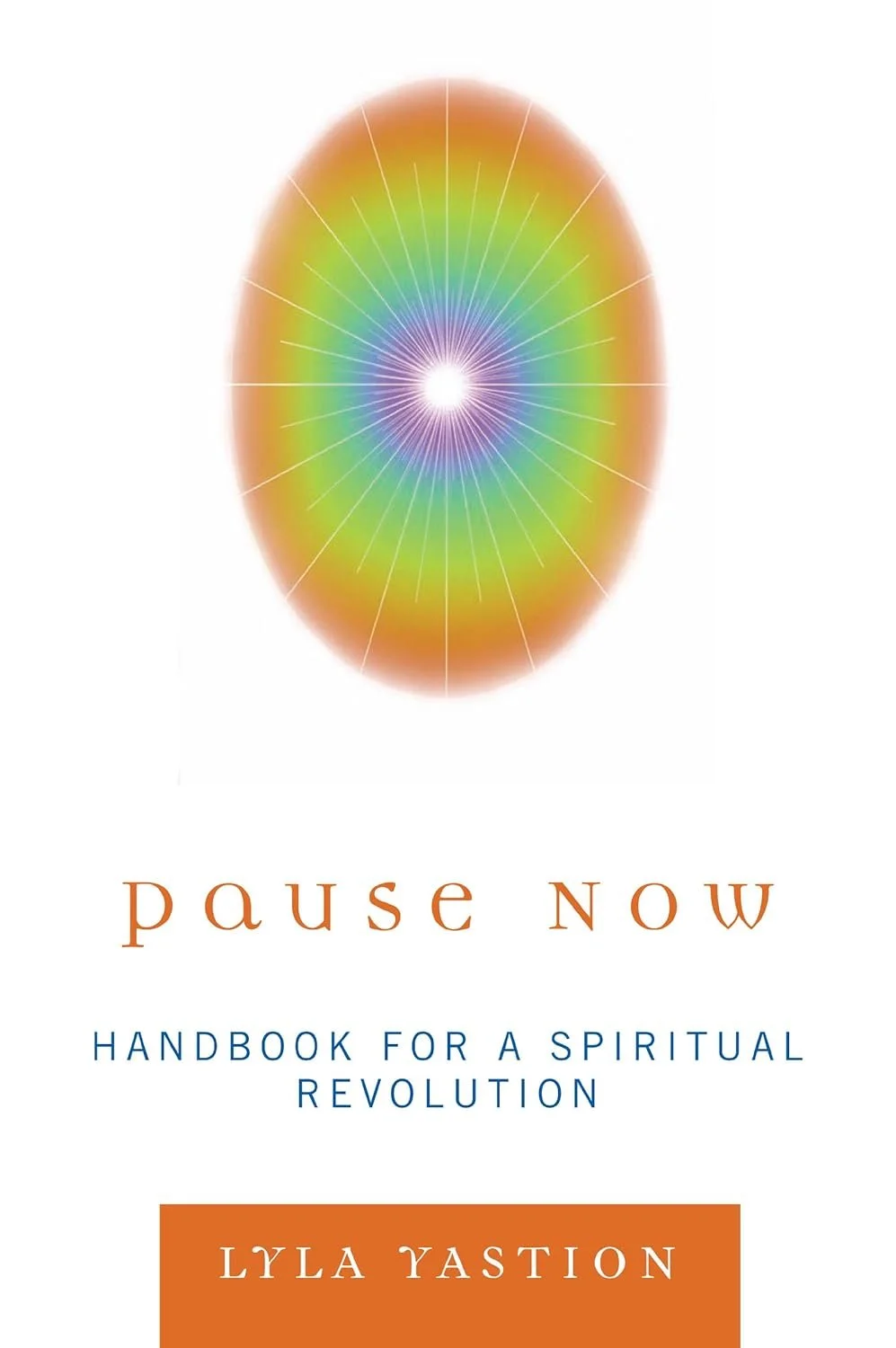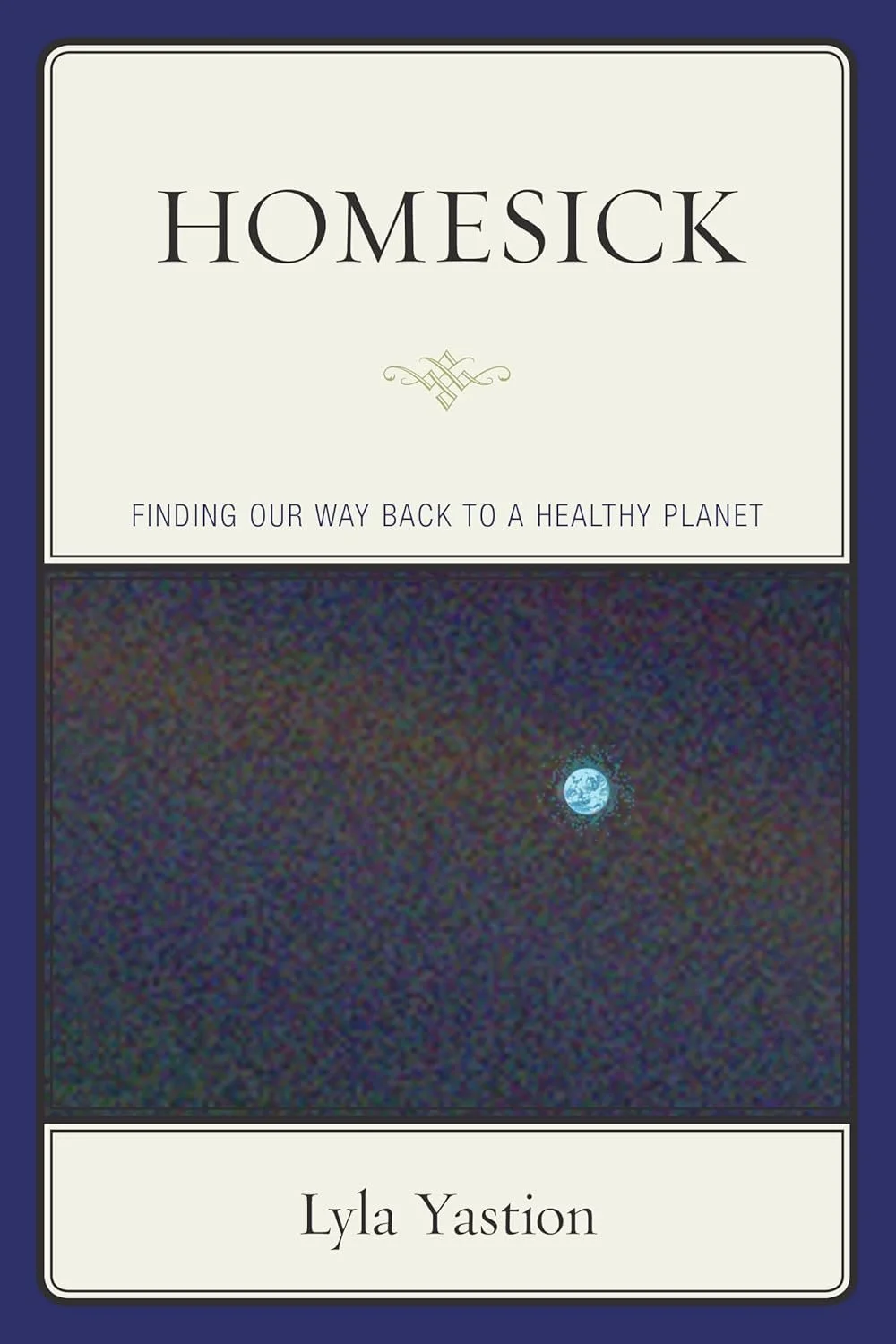My Years as an Alzheimer’s Caregiver: transcending loss by nurturing spirit is a valuable reference book for caregivers of people living with Alzheimer’s disease. The book argues that even as the body fails, the soul or spirit remains untouched and can be nourished. Caregivers can nourish the soul of the person living with Alzheimer’s through spiritual practices and artistic pursuits. These activities can bring peace and happiness, releasing the person momentarily from the effects of Alzheimer’s disease. Lyla encouraged Edward’s own artistic gift of Japanese brush painting, entertained him with her artistic gift – playing classical pieces on the piano – and meditated with him regularly.
An important lesson that is learned, over and over, when caring for someone whose mental-emotional faculties are deteriorating, is this: love is the constant that preserves and nourishes the humanity of both the person living with Alzheimer’s disease and the caregiver.
The approach of the book is unique. It weaves together three elements: a scientific description of the brain and how Alzheimer’s disease disfigures it; a spiritual teaching based in the idea at the heart of many religions that we possess an imperishable spirit or soul; and an experiential component that shows through daily journal entries the progression of the disease and creative solutions to problems encountered.
Pause Now: Handbook for a Spiritual Revolution describes the spiritual practice of sensory awareness – also known as presence, mindfulness, or pausing.
When we get quiet and let our senses open to our surroundings the mind is no longer distracted by thoughts of the past or future. Instead, it comes to rest in the present moment where life is taking place. When we use our senses consciously we accept the moment, stay in the moment, and respond to the moment in positive ways. Pausing allows us to release our talents for the welfare of the community and the world.
Homesick: Finding Our Way Back to a Healthy Planet was inspired by students who took Lyla’s ecological anthropology course at SUNY New Paltz, who displayed a passionate concern about human-induced climate change.
Homesick explains the origins of global warming, both physical and cultural, and offers solutions based on ecologically sustainable practices. The Earth is sick because we human beings are sick. We have forgotten that the Earth is our mother, the source of our sustenance. This forgetting leads to abuse. The cure is changing our cultural mindset by remembering what John Muir called “an ancient mother-love.”
Discover press & praise for the book, and watch interviews with the author here!



